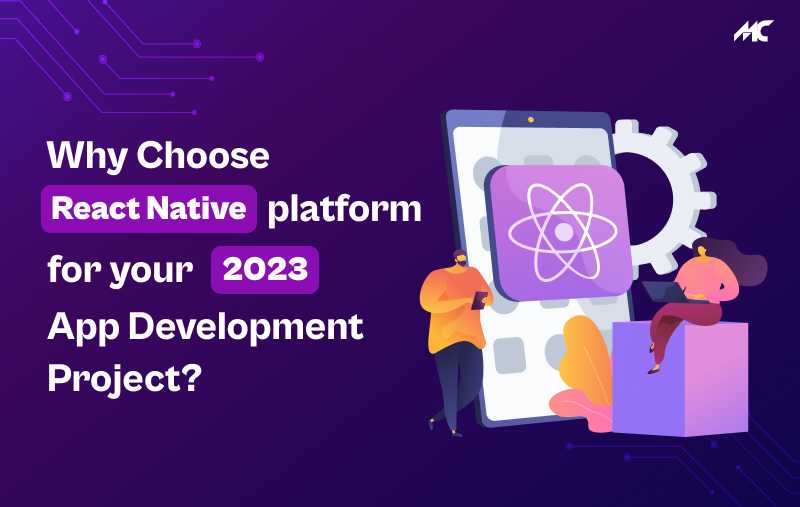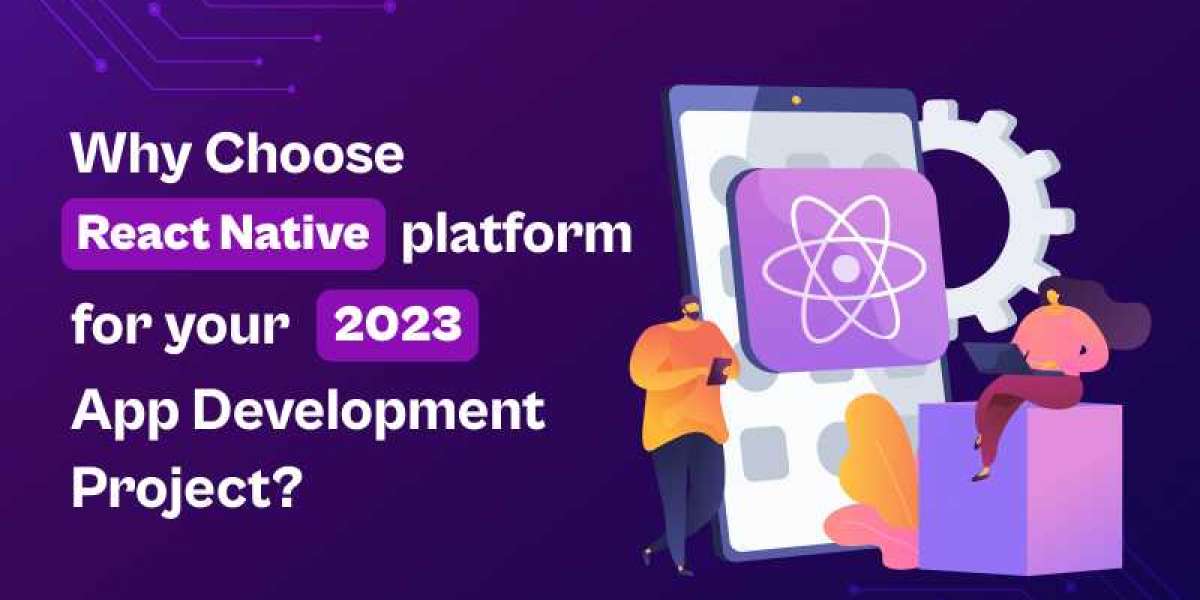
In today's fast-paced digital world, mobile app development has become a crucial aspect for businesses to succeed in the market. With a variety of platforms available, it can be overwhelming to choose the right one for your project. However, React Native has emerged as a leading choice for app development due to its flexibility, performance, and cost-effectiveness.
React Native is an open-source mobile application development framework that allows developers to build native apps for iOS and Android platforms using a single codebase. Developed by Facebook, React Native has gained immense popularity in recent years and has been adopted by companies such as Instagram, Uber, and Airbnb.
One of the main advantages of React Native is its ability to deliver a native-like experience to users, similar to apps built using traditional native technologies. React Native achieves this by using a hybrid approach that combines native code and web technologies. This approach allows developers to reuse code across platforms, reducing development time and cost.
Benefits of React Native for app development
React Native is a popular open-source framework used by many app development companies to build high-quality mobile applications for both iOS and Android platforms. One of the biggest advantages of using React Native is its ability to offer a faster and more cost-effective app development process, as it allows developers to write code once and use it across multiple platforms.
Another benefit of React Native is its ability to offer a native-like user experience, thanks to its use of native UI components. This results in smoother animations, faster load times, and better overall performance compared to other cross-platform frameworks.
Moreover, React Native offers a large and active developer community, a vast array of pre-built components and libraries, and easy integration with third-party tools and services, making it an ideal choice for many businesses looking to develop their mobile applications.
Overall, partnering with a React Native App Development Company can help businesses create high-quality, efficient, and cost-effective mobile applications that can perform seamlessly across multiple platforms.
Comparison of React Native with other app development platforms
React Native is a popular framework for developing cross-platform mobile applications. It allows developers to use a single codebase to create apps for both iOS and Android platforms, making it a cost-effective solution for businesses. Here's a comparison of React Native with other app development platforms:
1. React Native vs. Native App Development:
Native app development involves creating separate codebases for iOS and Android platforms, whereas React Native allows developers to use a single codebase for both platforms. While native app development provides better performance and functionality, it can be more expensive and time-consuming than React Native development.
2. React Native vs. Flutter:
Flutter is another cross-platform mobile development framework that competes with React Native. Both frameworks use a single codebase to create apps for multiple platforms, but Flutter uses a different programming language (Dart) and has a different architecture than React Native. Flutter provides better performance and faster development speed than React Native, but it has a smaller community and fewer third-party libraries and tools.
3. React Native vs. Xamarin:
Xamarin is a cross-platform mobile development framework that uses C# programming language and .NET framework. Xamarin allows developers to create apps for iOS, Android, and Windows platforms using a single codebase. It provides better performance than React Native, but it has a steeper learning curve and requires knowledge of C# and .NET.
4. React Native vs. Ionic:
Ionic is a popular hybrid mobile development framework that uses web technologies like HTML, CSS, and JavaScript to create mobile apps. It allows developers to use a single codebase to create apps for multiple platforms, including iOS, Android, and the web. Ionic provides faster development speed than React Native, but it has lower performance and functionality.
Challenges of React Native app development
As a Leading React Native App Development Company, there are several challenges that you may encounter during the development process. These challenges can impact the quality and speed of your development, as well as the overall success of your app.
Here are some of the top challenges that you may face:
1. Limited Libraries and Components:
Although React Native provides a vast range of libraries and components to use, sometimes it may not be enough for the specific requirements of the project. In this case, you have to develop the components from scratch or customize the existing components, which requires a lot of time and effort.
2. Platform-Specific Development:
React Native allows the development of apps for both iOS and Android platforms, but there are some platform-specific differences that developers need to address. For example, iOS and Android use different navigational patterns and APIs, which require different development approaches.
3. Debugging:
Debugging React Native apps can be challenging as it requires developers to debug the JavaScript code on a device, which can be time-consuming.
4. Performance:
React Native offers great performance, but it can be challenging to optimize the app’s performance for different devices and screen sizes.
5. Compatibility Issues:
React Native is not always compatible with third-party libraries or modules, which can lead to issues in the app’s functionality.
6. App Store Approval:
App store approval for React Native apps can be challenging as it requires developers to follow specific guidelines and restrictions.
7. Lack of Documentation:
React Native is still a relatively new technology, so there may be a lack of documentation, which can make it challenging for developers to find solutions to specific problems.
Conclusion:
React Native is an excellent platform for developing mobile apps in 2023 due to its numerous advantages such as faster development time, cost-effectiveness, cross-platform compatibility, and easy integration with other libraries and APIs. React Native enables developers to create high-performance, user-friendly, and visually appealing mobile applications for both iOS and Android platforms using a single codebase.
Its robust and active community ensures continuous improvement and support for the platform, making it an ideal choice for businesses and developers alike. With its increasing popularity and adoption, React Native is poised to become the go-to platform for mobile app development in the coming years. If you are considering developing a mobile app in 2023, React Native should definitely be at the top of your list.








